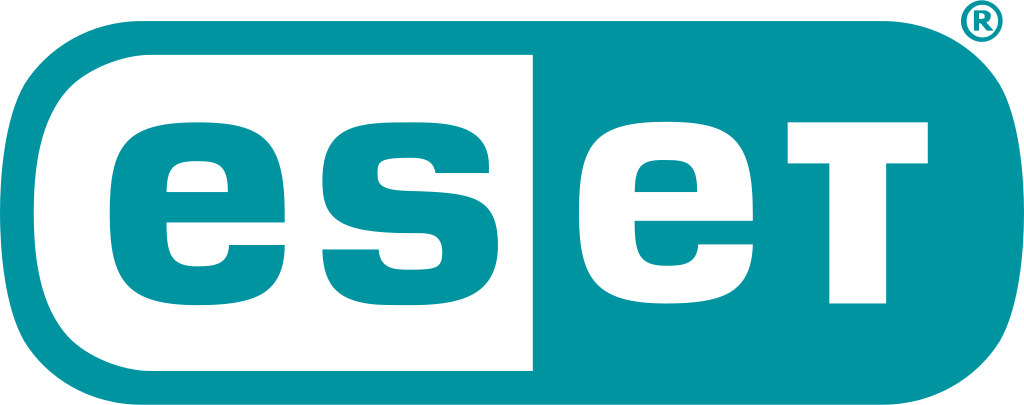ESET and Norton are both excellent antivirus programs. However, ESET isn’t quite as good as Norton. Most of ESET’s features are only compatible with Windows and Android, and some of its additional features — like the parental controls — don’t work very well. That said, ESET has some advantages that Norton doesn’t have. For example, it includes some excellent advanced diagnostics tools that tech-savvy users will love.
Today, I’m going to take a close look at both ESET and Norton and point out some key differences so that you can choose the best one for you in 2024.
Short on Time? ESET vs. Norton — Final Verdict:
Norton has better malware protection, web security, and features. Norton is well-priced and includes some great additional features. If you want the best antivirus in 2024, go with Norton.
ESET has better diagnostics tools. If you’re an advanced user and you often troubleshoot your PC, go with ESET.
Malware Protection
ESET
ESET includes an advanced malware scanner that checks every file on your computer for trojans, rootkits, worms, cryptojackers, and other malware files.
ESET’s malware scanner detected every malware sample on my computer. I tested it by hiding 1,000 malware samples on both my PC and my USB device. I then ran the system scan, which took about 40 minutes to complete. I didn’t experience any slowdown while running the scan.
Finally, I tested the real-time protection by trying to download the same malware samples, as well as ransomware and rootkits. ESET performed really well and blocked most of the samples before they caused any damage.
Norton
Norton’s malware scanner doesn’t look as deep into your system as ESET. Still, it does use heuristic analysis, a huge malware database, and machine learning to find known malware threats and zero-day attacks.
Norton was able to find every malware sample on my device. I hid the same samples on my Windows 11 PC that I used when testing ESET and ran Norton’s full system scan. Like with ESET, the full scan only took 40 minutes to complete and found everything.
I also really like Norton’s real-time protection. With it activated, I tried downloading the same malware samples, and Norton wouldn’t even let me hit the download button. It blocked the samples instantly.
Web Security
ESET
ESET’s web security protects you from visiting dangerous phishing sites. However, it can sometimes be a little too strict.
I tested ESET’s web security by visiting over 50 known phishing websites listed on PhishTank. ESET blocked every phishing website — including those Firefox and Chrome didn’t block. However, I often found ESET blocked safe websites that weren’t listed on PhishTank.
Annoyingly, adding exceptions for safe websites is difficult. You have to navigate through 4 different windows in ESET’s UI, and there’s no way to temporarily bypass a blocked website within your browser. In other words, beginner users might struggle to access websites they trust.
That said, ESET is great at blocking dangerous websites.
Norton
Norton’s web security also blocks dangerous phishing websites. However, Norton also offers community reviews on suspicious web pages, which ESET doesn’t.
To test Norton’s web security, I visited the same sites I used to test ESET. Norton similarly blocked every phishing site — including those that Chrome, Edge, and Firefox let through.
I also found Norton’s web security wasn’t as excessively vigilant as ESET, so I didn’t need to whitelist false positives so often. When I did need to, Norton made it much easier than ESET.
Features
ESET
ESET Smart Security Premium offers coverage on up to 10 devices (with an added fee for each device) and includes:
- Malware scanner.
- Real-time protection.
- Anti-phishing protection.
- Advanced diagnostics tools.
- Gaming mode.
- Network inspector.
- Safe browser.
- Parental controls.
- System cleaner.
- Password manager.
- And more…
ESET’s advanced diagnostics tools are its best feature. They include tons of ways for advanced users to monitor and troubleshoot their Windows PC. One tool I particularly like is ESET’s running process feature, which cross-references every application on your PC with ESET’s database and assigns it a security score. In other words, ESET tells you how safe an application is and whether it should be on your PC.
I also like ESET’s network inspector, which identifies all devices connected to your network and alerts you to any vulnerabilities — such as weak router passwords or open ports. It’s not a tool beginner users would need, but it’s something advanced users will appreciate.
Norton
Norton 360 Deluxe offers coverage on up to 5 devices (for no additional fee) and includes:
- Malware scanner.
- Real-time protection.
- Firewall.
- Anti-phishing protection.
- Password manager.
- VPN (virtual private network).
- Dark web monitoring.
- 50 GB cloud storage.
- Webcam protection (Windows only).
- Identity theft protection (US only).
- And more…
I really like Norton’s dark web monitoring. Most antiviruses with dark web monitoring only check your email against a publicly-available database. However, Norton hires live agents who will actively monitor your accounts and alert you to any breaches as and when they happen. They’ll also be able to advise you on what you should do in case of a breach.
If you’re in the US, you can also get credit monitoring, $1 million in legal assistance should you fall victim to identity theft, and more.
Norton’s VPN is pretty good, too. It provides access to servers all over the world, uses 256-bit AES encryption so hackers can’t steal your data, and offers unlimited browsing data — even on the cheapest plan. Many antiviruses impose data restrictions if you choose a cheaper plan.
Ease of Use
ESET
ESET doesn’t take long to install and is pretty easy to navigate. It features a simple interface with each feature listed in a menu on the left, and whatever feature you click on appears in the center of the screen.
However, not every ESET feature is easy to set up. For example, I had to go through 15 different steps when scheduling a scan. Many competitors just have you click a calendar icon and a date or time. I have no idea why ESET makes such a simple process so complicated.
That said, ESET’s mobile app is pretty good and easy to navigate. It’s only available for Android, though, which is disappointing. Norton offers a mobile app for Android and iOS.
Norton
Norton’s user interface does take a bit of getting used to as it includes lots of features. However, I never struggled with using any of the features as I did with ESET.
I like how Norton provides multiple options for its UI. You can use a modern view, a classic view, or a web-based dashboard. Most of the time, I found myself using the web dashboard as each feature on it is clearly laid out with large buttons, and they’re all super easy to access.
Norton’s mobile apps are really good, too. They’re easy to navigate and support both Android and iOS — this is much better than ESET, which only offers an Android app. Honestly, my only complaint is you have to download multiple apps to get all of Norton’s mobile features, so you can quickly fill up your phone’s home screen with Norton apps.
Customer Support
ESET
ESET has an extensive range of customer support options, including live chat, phone (business users only), and email support. Unfortunately, some of these options are hidden away on ESET’s website.
ESET’s support services for non-business users are underwhelming. It provides phone support to corporate users, but home users only have access to live chat, and even this is limited to certain regions — for example, you can’t get live chat in the UK. Such limited access can be frustrating when you need immediate help from ESET’s support team.
That said, the live chat team was helpful and answered all of my questions with clear, concise instructions when I did get in touch with them from Canada.
I wasn’t too impressed with ESET’s email support. They only took about 8 hours to respond (which isn’t bad), but the response was copied and pasted. It didn’t feel very personalized or helpful at all.
Norton
Norton’s customer support is pretty good. It offers phone and live chat support in several languages, including English, Turkish, German, and Mandarin.
The live chat took a little while to activate and the agents weren’t the fastest to respond, but they were nonetheless pleasant and helpful. The phone support was also very good; the agents were readily accessible, their responses were quick, and they were even able to answer more complex questions efficiently.
The Norton knowledge base met all my needs completely. it’s filled with FAQs, product manuals, and additional resources. It’s such a comprehensive and handy tool that I frequently didn’t need to reach out to a customer service rep at all, since I found all the answers I needed within the knowledge base.





